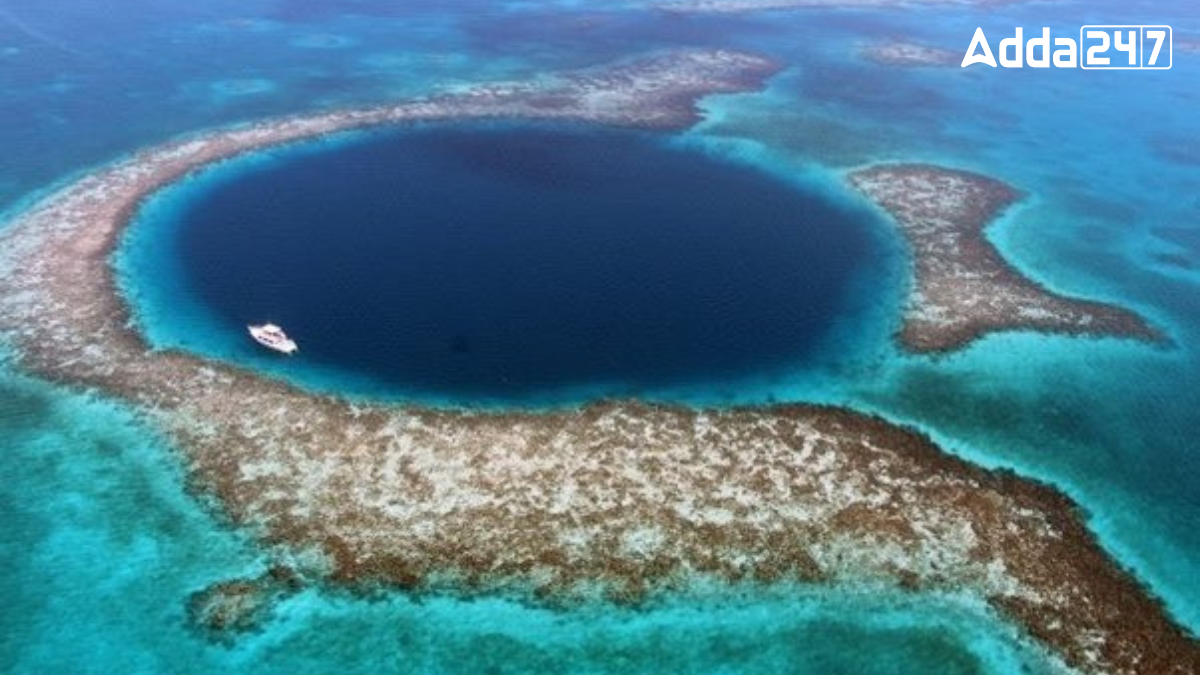Stunning, awe-inspiring, and mysterious, Earth’s relief formations are among its most significant features. While water bodies cover about 71% of the planet and are essential for life, some places are extremely dangerous. Here, we delve into the top 10 most perilous water locations that are sure to captivate readers interested in exploring the world’s mysteries.
Top-10 Most Dangerous Water Places in the World
Water bodies can be serene and beautiful, offering relaxation and recreation. However, some places in the world harbor hidden dangers beneath their surfaces. Here is the list of top-10 most dangerous water places in the world:
| Top-10 Most Dangerous Water Places in the World | ||
| S. No. | Places | Location |
| 1. | Lake Kivu | Democratic Republic of Congo |
| 2. | Drake Passage | Antarctica |
| 3. | Rio Tinto | Spain |
| 4. | Boiling Lake | Dominica |
| 5. | Horseshoe Lake | California, USA |
| 6. | The Blue Hole | Dahab, Egypt |
| 7. | Lake Natron | Tanzania |
| 8. | Lake Michigan | USA |
| 9. | Jacob’s Well | Texas, USA |
| 10. | Great Blue Hole | Belize |
Lake Kivu
Location: Democratic Republic of Congo
Lake Kivu is a freshwater lake with high concentrations of dissolved gases, including an estimated 55 billion cubic meters of methane. The lake’s floor features a rift valley that is slowly separating, leading to volcanic activity in the area. A minor earthquake could trigger a massive explosion, potentially vaporizing the surrounding communities.
Drake Passage
Location: Antarctica
The Drake Passage is the shortest route from Antarctica to any other landmass. Known for its converging currents, the area is characterized by icebergs, massive waves, and fierce winds. Before the Panama Canal was built, it was the only known sea route in the region, making it treacherous for ships.
Rio Tinto
Location: Spain
Known as the “Red River,” the Rio Tinto’s waters are dense with metals, extremely acidic, and low in oxygen, creating a habitat for extremophile anaerobic bacteria. The unique conditions of this river make it hazardous for most life forms.
Boiling Lake
Location: Dominica
The Boiling Lake’s waters can reach temperatures of 180 to 197°F (82–92°C) along the edges, with the center being even hotter. Located near a volcano, the lake is heated by steam and gases escaping from molten lava below. Swimming here is strictly prohibited due to the extreme temperatures.
Horseshoe Lake
Location: California, USA
Horseshoe Lake is surrounded by beautiful scenery, but the carbon dioxide emissions from cracks in the ground make it dangerous for humans. The invisible, odorless gas can cause asphyxiation, posing a significant risk to visitors.
The Blue Hole
Location: Dahab, Egypt
A diver’s dream and nightmare, the Blue Hole is a 400-foot-deep cave infamous for nitrogen narcosis. It’s considered the deadliest diving site in the world, attracting adventurers akin to mountaineers scaling Everest or Kilimanjaro.
Lake Natron
Location: Tanzania
One of the saltiest and most alkaline lakes on Earth, Lake Natron has a pH above 12. The lake’s reddish appearance is due to bacteria, and the waters can reach temperatures up to 140°F (60°C), making it inhospitable for most life forms.
Lake Michigan
Location: USA
Lake Michigan is infamous for unexplained plane crashes over its waters, drawing comparisons to the Bermuda Triangle. Some experts suggest that sudden currents may be responsible for these mysterious incidents.
Jacob’s Well
Location: Texas, USA
Jacob’s Well is a crystal-clear lake that is deceptively dangerous for divers. The well drops vertically about 30 feet (9.1 meters) before continuing at an angle through a series of narrow silt chambers, eventually reaching depths of 120 feet (37 meters). It is one of the most perilous diving spots.
Great Blue Hole
Location: Belize
Formed by glacial melt during the last Ice Age, the Great Blue Hole is a massive submarine sinkhole. It is deadly due to the powerful tides that can pull objects on the surface down into its depths, posing a serious threat to divers and marine vessels.




 Which Country is known as the Land of Mo...
Which Country is known as the Land of Mo...
 Which Languages is known as the Mother o...
Which Languages is known as the Mother o...
 Which Country is known as the Highest Pr...
Which Country is known as the Highest Pr...








